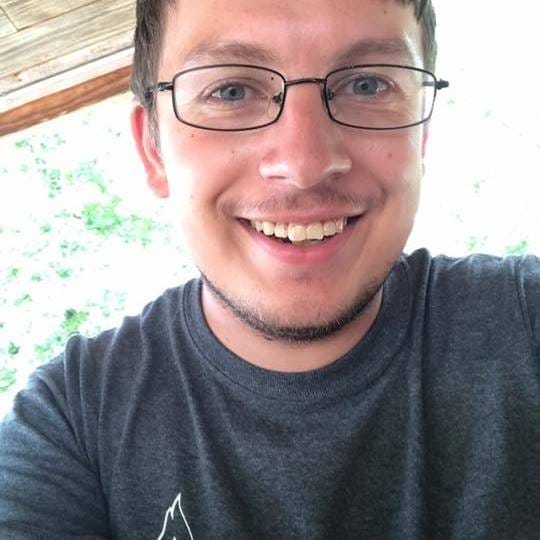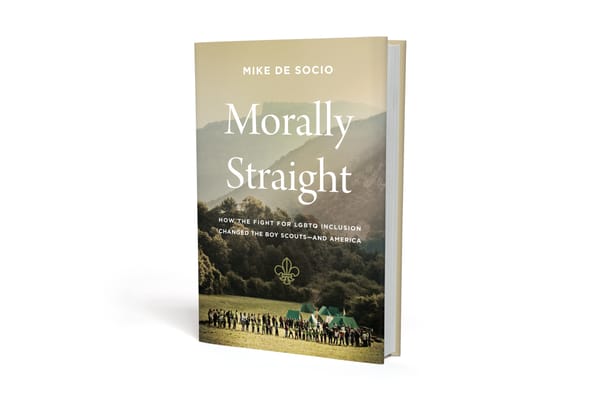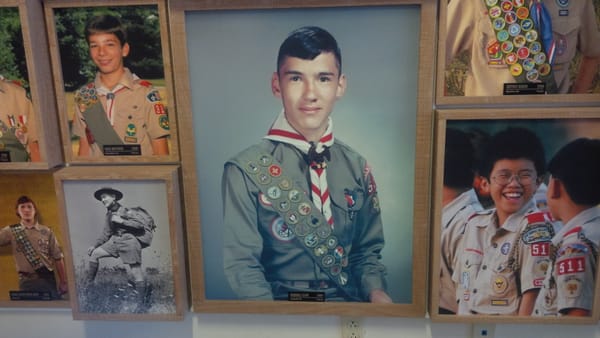Pride Profile: Christian Goerner
'There’s plenty of us here and you would never know it:' How an openly gay lodge chief advocated for LGBTQ+ youth during Scouting's divisive membership debates

When Christian Goerner became lodge chief in 2014, his lodge in Atlanta had been losing members for the better part of a decade.
It was a tumultuous time for Scouting: A year earlier, the organization had ended its blanket ban on gay youth members, and the debate around whether to allow gay adults was still raging.
Goerner’s own sexual orientation was an open secret at the time: His fellow lodge officers and most everyone else in his lodge knew he was gay.
“Everybody who was a youth in the program under 21 knew, and no one really cared. And it was just great to finally be somewhere that was accepting,” said Goerner. He grew up in a rural part of his council, where he never felt comfortable being out. But his involvement in the Order of the Arrow brought him into more liberal spaces where he felt he could truly be himself.
“The OA was just more inclusive,” Goerner said. And that’s where he dedicated most of his time after earning the Eagle Scout rank at age 16.
Goerner said he wasn’t scared of being out in his council in those days, even though the gay adult ban lingered; he didn’t plan on being involved in the program past age 21, and he felt like his presence could make a difference for LGBTQ+ scouts in Atlanta.
He used his position to institute one significant policy change of his own: Adding sexual orientation to his lodge’s non-discrimination clause in a year when the bylaws were being rewritten anyway. The measure passed unanimously, and still stands to this day.
Goerner also made use of his influence on local adult leadership, some of whom were still resistant to gay members.
"They’ve been here, we’re going to continue being here, and all this policy does is hurt people,” he would say. Especially as more and more youth came out to him, Goerner felt more confident standing up for their interests. “There’s plenty of us here and you would never know it,” he would tell the adults.
When the policy finally did change in 2015 — allowing gay adults to openly participate in the BSA — Goerner said most of the resistant adults in his lodge voluntarily left Scouting. That resulted in new leaders and a new energy in the lodge that served to reinvigorate the program.
"The unintended consequences were actually good for my lodge,” Goerner said. It saw membership growth and a “quality lodge” designation for the first time in a decade.
These days, Goerner is a 25-year-old law student. He volunteers as an assistant scoutmaster in the troop he grew up in — back in that rural part of the council. Once again, his sexual orientation is an open secret, though no one really talks about it.
Goerner said he’d like to see the BSA continue to develop training and programing to support LGBTQ+ youth. He’s especially excited about the Diversity, Equity and Inclusion Merit Badge, which promises to give kids a baseline of knowledge they may not receive anywhere else.
But he also feels the organization needs to be educating the adults, too.
“A lot of them didn’t grow up understanding these terms … understanding that there's more than just gay and straight now. So when they come across it in their units, they [should be] able to address it and understand it accordingly. The days of saying, that's just an issue for your parents, is behind us,” Goerner said.
Goerner felt that type of conversation was too far out of reach when he was leading his lodge. But now he feels like it’s time for the BSA to take the lead.
“We need to move forward in a way that we're telling kids that they're normal, and making sure they feel included in the Scouting program,” he said.


